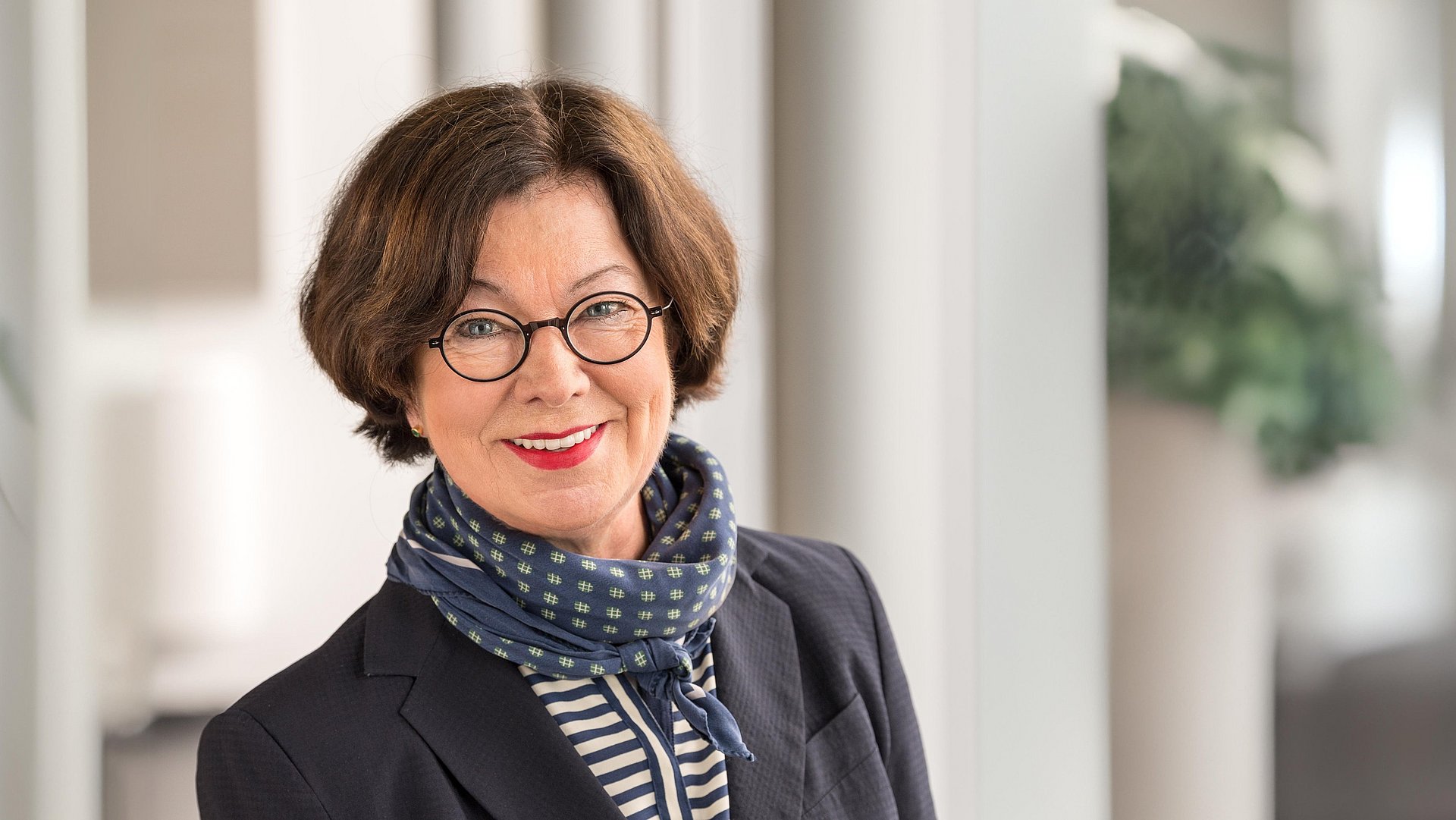Plagiarism, data manipulation, incorrect author citations - in cases of suspected scientific misconduct, researchers at TUM can and should contact Prof. Kristina Reiss. The TUM professor emerita of Mathematics Education has been Ombudsperson for good scientific practice since 2022.
 Astrid Eckert / TUM
Astrid Eckert / TUM Professor Reiss, what exactly does an ombudsperson do?
The core assignment is to ensure compliance with the fundamental principles of scientific work. For example, scientists have to work on an evidence-based basis and are required to verify and disclose their results. While this may sound obvious, conflicts do arise. And when they do, researchers can reach out to me or my alternate, Professor Wolfgang Domcke.
What are the typical cases of scientific misconduct you deal with?
It's common for several individuals to work together on a given publication. Here, conflicts may arise, for example regarding the right to use data that has been collected jointly. Or there may be disagreement about the amount an individual has contributed to a publication and thus about the question of who is to be cited as the authors and in what sequence the names are to appear.
The number and quality of publications are decisive factors in a scientific career.
Publication has always been the most crucial factor in science. However, the pressure to publish as much as humanly possible has increased drastically. These days it takes many more publications in order to reach a particular step on the career ladder. And, of course, there are also gray areas in terms of the question of what exactly makes a contribution substantial enough to justify a named citation. Accordingly, we have to debate more transparently and more realistically about how scientific performance is to be measured and recognized. This is particularly in the best interest of younger people who have chosen a career in science. And our work can help improve things here.
What specific steps do you take when someone approaches you with a suspicion of scientific misconduct?
We hold all reports of misconduct in complete confidentiality and we maintain neutrality. And I think that's the most important foundation of our work: trust. We're the ones who do not pass on any information and who conscientiously verify everything. First, in a discussion with the person submitting the report, we ascertain whether or not the suspicion is justified. In a second step we try to talk to both parties in the conflict - together or separately - and of course only with mutual consent. We can very frequently mediate and come to a solution acceptable to both sides.
What happens if that doesn't work?
Then there's a formal investigative procedure in which we call in experts who are familiar with the scientific substance of the conflict. The result of this ombudsperson procedure is then passed on to the university president, together with a recommendation on further steps. The president then decides on concrete measures. Fortunately, in the almost two years I've been in this position, we've always been able to avoid going that far.
Programs like ChatGPT make it possible to generate extensive texts with just a few clicks. Do you think this will lead to an increase in the number of plagiarism cases?
It may certainly be the case that amount of plagiarism will increase because it has become easier in many areas. Nevertheless, I'm always optimistic and I'm convinced that the sense of responsibility on the part of researchers is in general very high. And in many subject areas, for example mathematics or technical disciplines, arriving at results this way cannot be completely ruled out but it is currently not readily possible.
We are obligated to investigate every concern submitted to us in a neutral and independent manner. This strengthens the credibility of scientific activity and helps to reduce skepticism.
Prof. Kristina Reiss
Ombudsperson Research
Trust in science seems to have diminished in recent years, at least in some parts of society. Can the role of the ombudsperson help to counteract this development?
The very existence of instances such as the ombudsperson is very important: There are not only ombudspersons at individual universities and institutes; they also exist at the national level, for example the "German Research Ombudsman", the Berlin-based group for good scientific practices. Anybody can turn to these offices for support in strict confidence. We are obligated to investigate every concern submitted to us in a neutral and independent manner. This strengthens the credibility of scientific activity and helps to reduce skepticism.
What skills from your professional career help you in your role as ombudsperson?
Sometimes I like to joke that a math degree doesn't help much, psychology may have been a better idea. This kind of work always entails interpersonal aspects which go beyond the respective scientific fields. I listen, I try to see both points of view and I try to mediate. My experience as a Dean helps me here. These questions come up in an academic department as well: How do we want to work together, how do we handle conflicts? This is where I see the opportunity of the ombudsperson role: talking with one another, calling your own behavior into question and mediating conflicts.
- The Ombudspersons Research provide advice on questions of good scientific practice and can be called in to consult confidentially in cases of suspected scientific misconduct. Together with the Ombudsperson Respect, the Ombudspersons Science are allocated to the TUM Compliance Office, headed by Vice President Compliance Prof. Angelika Görg. The TUM Compliance Office upholds integrity and transparency at TUM on its own independent authority.
- As TUM Emeritae and Emeriti of Excellence






